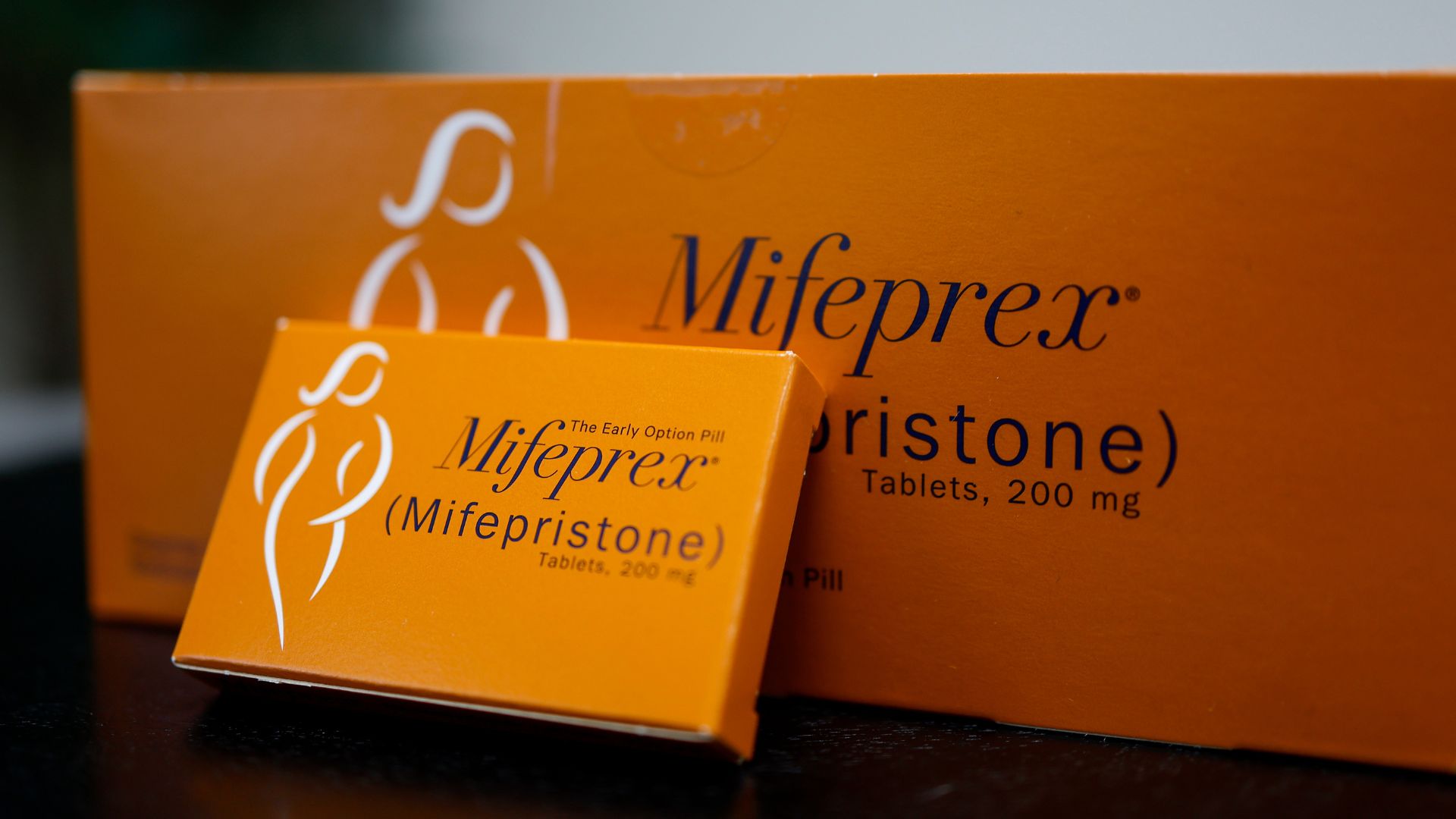Supreme Court preserves access to abortion pill mifepristone in unanimous ruling
In a 9-0 ruling, the court determined that an anti-abortion collective didn't have legal standing to raise the case against mifepristone to the Supreme Court.

In a unanimous ruling, the Supreme Court of the United States (SCOTUS) has rejected a bid to restrict people's access to the widely used abortion pill mifepristone. The drug is one half of a two-pill regimen prescribed for medication abortions, which made up more than 60% of all abortions in the U.S. last year.
The plaintiffs in the case were members of the Alliance for Hippocratic Medicine (AHM), a collective of anti-abortion groups that includes doctors. The defendant was the Food and Drug Administration (FDA).
The plaintiffs argued that AHM has the right to sue the FDA over how it regulates mifepristone because the collective's members may end up treating patients who experience side effects of the drug. In recent years, the FDA has made it easier for patients to access the pill — for instance, people can now be prescribed mifepristone after a telehealth appointment, rather than an in-person doctor's visit, and they can then receive it in person from a pharmacy or by mail.
Telehealth abortions are as safe and effective as those prescribed in person, but in a small percentage of cases, people may experience serious side effects or require additional treatment to end their pregnancy. The plaintiffs argued that, if tasked with treating such patients, AHM members would have to divert resources from other patients, and in addition, treating patients with these side effects would violate the doctors' moral stances around abortion.
Related: Roe v. Wade: Facts about the landmark case
The Supreme Court had to address whether AHM had the legal standing to sue the FDA on these grounds. On Thursday (June 13), the court unanimously agreed that the plaintiff did not have legal standing.
—Abortion laws by state: https://reproductiverights.org/maps/abortion-laws-by-state/
—For questions about legal rights and self-managed abortion: www.reprolegalhelpline.org
—To find an abortion clinic in the U.S.: www.ineedanA.com
—Miscarriage & Abortion Hotline operated by doctors who can offer expert medical advice: Available online or at 833-246-2632
—To find practical support accessing abortion: www.apiarycollective.org
In a 9-0 opinion delivered by Justice Brett Kavanaugh, the court declared that "the plaintiffs have failed to demonstrate that FDA's relaxed regulatory requirements likely would cause them to suffer an injury in fact. For that reason, the federal courts are the wrong forum for addressing the plaintiffs' concerns about FDA's actions."
Sign up for the Live Science daily newsletter now
Get the world’s most fascinating discoveries delivered straight to your inbox.
The full text of the ruling can be read online.
The regimen involving mifepristone and a second pill, misoprostol, is the most commonly prescribed regimen for medication abortions in the United States. Mifepristone ended up in the Supreme Court after its approval and regulation was challenged in lower courts.
Initially, a Texas judge ruled that the FDA's original approval of the pill in 2000 should be overturned. That ruling was appealed, and an appellate court said that the drug's approval should stand unchallenged.
However, the appellate court wanted to roll back regulatory changes that the FDA made in 2016 and 2021, on the grounds that the FDA didn't adequately follow procedure or explain its reasoning when it made these changes. This rollback would have reinstated the requirement for patients to get the pill in person from a certified doctor, along with other restrictions.
The appellate court's decision was then appealed by both the AHM and FDA, and the case moved up to SCOTUS.
Had SCOTUS decided that the AHM had legal standing, it could have impacted the FDA's authority over all drugs — not only abortion pills. Stakeholders in the pharmaceutical industry and medical ethics experts expressed concerns that setting such a precedent could have opened the door for doctors to sue over any drug approval or regulation they disagree with, regardless of that medicine's safety or effectiveness.
Ever wonder why some people build muscle more easily than others or why freckles come out in the sun? Send us your questions about how the human body works to community@livescience.com with the subject line "Health Desk Q," and you may see your question answered on the website!

Nicoletta Lanese is the health channel editor at Live Science and was previously a news editor and staff writer at the site. She holds a graduate certificate in science communication from UC Santa Cruz and degrees in neuroscience and dance from the University of Florida. Her work has appeared in The Scientist, Science News, the Mercury News, Mongabay and Stanford Medicine Magazine, among other outlets. Based in NYC, she also remains heavily involved in dance and performs in local choreographers' work.
Man gets sperm-making stem cell transplant in first-of-its-kind procedure
'Love hormone' oxytocin can pause pregnancy, animal study finds










